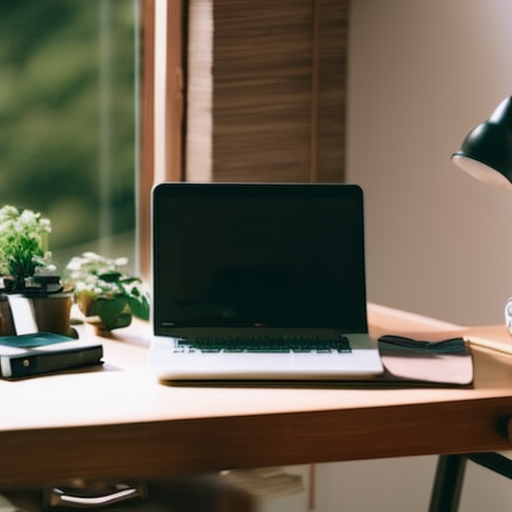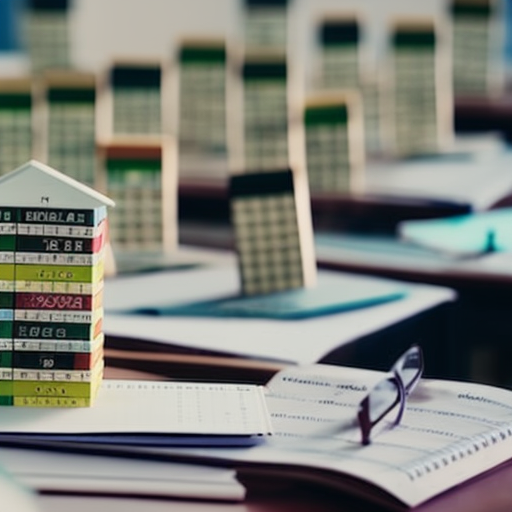"Cherishing Little Steps - A Haven for Baby and Family Journeys"
Effective Study Habits for Teens
Do you ever feel like you’re studying for hours, but not getting the results you want?
Well, did you know that there are effective study habits specifically designed for teens that can help you achieve better grades? That’s right! By implementing these habits into your routine, you can maximize your study time and improve your overall performance.
From setting clear study goals to finding a quiet and comfortable study space, these tips will help you stay focused and motivated. You’ll also learn how to eliminate distractions, use effective note-taking techniques, and develop a study schedule that works for you.
So, if you’re ready to take your studying to the next level, let’s dive in and discover the secrets of effective study habits for teens!
Key Takeaways
- Setting clear study goals and creating a study schedule
- Finding a quiet and comfortable study space
- Eliminating distractions
- Using effective note-taking techniques
Set Clear Study Goals

To set clear study goals, you need to establish specific objectives and tasks that you’ll work towards in your study sessions. Clear study objectives are essential for effective goal setting and can greatly enhance your learning experience. When you have a clear idea of what you want to achieve, it becomes easier to stay focused and motivated during your study sessions.
Start by identifying the specific areas or topics you want to master. Break down these areas into smaller, manageable tasks that you can accomplish within a specific timeframe. For example, if you’re studying for a math test, your objective might be to understand and solve a certain number of practice problems each day.
Make sure your goals are realistic and achievable. Setting too high expectations can lead to frustration and burnout. It’s better to set smaller, incremental goals that you can easily accomplish and build upon.
Additionally, it’s helpful to prioritize your goals based on their importance or urgency. This will help you allocate your time and resources efficiently and ensure that you’re making progress in the areas that matter most.
Find a Quiet and Comfortable Study Space

Establish a quiet and comfortable study space where you can fully concentrate and engage in your learning activities. Creating a conducive environment is essential for effective studying.
Here are three tips to help you find the perfect study space:
-
Choose a quiet area: Look for a place where you won’t be easily distracted by noise. It could be a corner in your bedroom, a quiet library, or a designated study room. Eliminating distractions will help you focus better and absorb information more efficiently.
-
Make it comfortable: Find a chair and desk that are ergonomically designed to support your posture. Ensure proper lighting to avoid straining your eyes. Make the space aesthetically pleasing by adding plants, motivational posters, or calming scents. Feeling comfortable in your study space will make studying feel less like a chore and more like a pleasant activity.
-
Find a study buddy: Studying with a friend who shares your academic goals can be beneficial. It can help keep you accountable and motivated. Find someone who’s focused and committed to studying, so you can create a productive environment together. However, ensure that your study buddy doesn’t become a distraction. Choose someone who respects your study time and can contribute positively to your learning experience.
Eliminate Distractions

Create a focused and productive study environment by actively removing distractions from your study space. Minimizing interruptions is essential for improving your focus and concentration while studying. Here are some effective techniques to help you eliminate distractions and optimize your study time.
Firstly, turn off your phone or put it on silent mode. The constant buzzing and notifications can easily break your concentration and derail your study session. If possible, keep your phone in another room so that you’re not tempted to check it every few minutes.
Next, clear your study area of any unnecessary items or clutter. A clean and organized workspace can greatly enhance your ability to focus. Put away any unrelated books, toys, or gadgets that may distract you from your studies.
Another way to minimize distractions is to establish boundaries with family members or roommates. Let them know that you need uninterrupted study time and ask them to respect your space during those periods. If necessary, use noise-canceling headphones to block out any background noises or conversations.
Lastly, consider using productivity apps or browser extensions that block or limit access to social media websites or other distracting online platforms. These tools can help you stay focused and prevent you from getting sidetracked by mindless scrolling.
Use Effective Note-Taking Techniques

Now let’s explore how you can improve your study skills even further by utilizing effective note-taking techniques. Taking good notes is an essential skill that can help you retain information, organize your thoughts, and better understand the material you’re studying. Here are three effective note-taking strategies to help you succeed:
-
Cornell Method: This method involves dividing your note paper into three sections: a narrow left-hand column, a wider right-hand column, and a bottom section. During class or while reading, jot down key points and main ideas in the right-hand column. Use the left-hand column to write questions or cues that will help you review and quiz yourself later. Finally, summarize the main ideas in the bottom section, creating a concise and comprehensive study tool.
-
Mind Mapping: Mind mapping is a visual technique that helps you make connections between different concepts. Start by writing the main topic or idea in the center of the page and draw branches for related subtopics. Add keywords, images, and colors to represent different ideas and their relationships. Mind maps are great for visual learners and can serve as a quick overview or a detailed study guide.
-
Abbreviations and Symbols: Develop your own system of abbreviations and symbols to save time and space while taking notes. Use arrows, stars, and underlines to highlight important information. Write down key terms and their definitions in a concise format. By using abbreviations and symbols, you can capture more information and review your notes more efficiently.
Develop a Study Schedule

To effectively manage your time and maximize your study efforts, it’s essential to establish a consistent study schedule. Having a study schedule helps you stay organized, prioritize your tasks, and create a sense of routine. It also ensures that you allocate sufficient time for studying each subject, reducing the chances of procrastination and last-minute cramming.
When creating your study schedule, consider your daily routine, commitments, and energy levels. Find a time when you’re most alert and focused, whether it’s in the morning or evening. Block out specific time slots for each subject, allowing for breaks in between to rest and recharge. Remember to factor in extracurricular activities, family time, and personal hobbies to maintain a healthy balance.
Time management is crucial to productivity. Use productivity tips such as breaking down your study sessions into smaller, manageable tasks. Set realistic goals and deadlines for each task to stay motivated. Prioritize your assignments based on deadlines and difficulty level. Additionally, consider using productivity tools like timers, apps, or study planners to track your progress and keep you accountable.
Break Down Studying Into Manageable Chunks

To effectively manage your study time and retain information more easily, it’s important to break down your studying into manageable chunks. This approach allows you to focus on specific topics or tasks without feeling overwhelmed.
Here are three tips to help you break down your studying effectively:
-
Prioritize your tasks: Start by identifying the most important and urgent topics that need your attention. By prioritizing your tasks, you can allocate your time and energy accordingly. This will prevent you from spending too much time on less important subjects.
-
Create a study schedule: Once you have identified your priorities, create a study schedule that breaks down your studying into smaller, manageable chunks. Allocate specific time slots for each topic or task, ensuring you have enough time to cover everything without feeling rushed.
-
Utilize technology tools: Take advantage of technology tools to enhance your study sessions. Use apps and online resources to create flashcards, quizzes, or interactive study materials. These tools can help you review and reinforce concepts in a more engaging and efficient manner.
By managing your time effectively and utilizing technology tools, you can break down your studying into manageable chunks. This approach won’t only help you retain information better but also make your study sessions more productive and enjoyable.
Utilize Active Learning Strategies

Maximize your studying potential by actively engaging in learning strategies. Utilizing active learning strategies is a powerful way to enhance your understanding and retention of information. Rather than simply passively reading or listening to lectures, actively participating in the learning process can help you grasp concepts more effectively.
One effective strategy is to practice effective note-taking techniques. Taking concise and organized notes during class or while studying can help you engage with the material and reinforce your understanding. Try using abbreviations, symbols, and diagrams to condense information and make it easier to review later.
Another active learning strategy is to engage in discussions or group activities. Explaining concepts to others or participating in group projects can deepen your understanding and allow you to see different perspectives.
Additionally, incorporating hands-on activities, such as conducting experiments or solving real-life problems, can make learning more engaging and memorable.
Seek Support From Peers or Study Groups

Collaborate with classmates and join study groups to enhance your learning experience. Peer collaboration is a powerful tool that can help you gain a deeper understanding of the material you’re studying. Here are three reasons why seeking support from peers or study groups can be beneficial:
-
Shared knowledge and perspectives: When you study with others, you have the opportunity to learn from their experiences and gain different perspectives on the subject matter. Each person brings their unique insights, helping you see things from different angles and expanding your understanding.
-
Motivation and accountability: Being part of a study group provides a sense of accountability. Knowing that others are counting on you to contribute and show up prepared can motivate you to stay focused and committed. Additionally, studying with others can create a supportive environment where you can encourage and motivate each other to reach your academic goals.
-
Study group dynamics: Study groups offer a collaborative learning environment where you can engage in discussions, ask questions, and clarify doubts. Explaining concepts to others can deepen your own understanding, and listening to peers can expose you to new ideas and concepts. This dynamic interaction can enhance your comprehension and retention of the material.
Use Mnemonic Devices to Aid Memory Retention

Improve your memory retention by incorporating mnemonic devices into your study routine. Mnemonic devices are memory techniques that help you remember information through the use of associations or patterns. They can be especially helpful when studying for exams or trying to remember large amounts of information. By using mnemonic devices, you can make studying more engaging and effective.
One popular mnemonic device is the method of loci, also known as the memory palace technique. It involves associating information with specific locations in a familiar place, such as your house. Imagine walking through each room and placing the information you need to remember in different spots. When you need to recall that information, you can mentally walk through the house and retrieve it.
Another mnemonic device is acronyms, which involve creating a word or phrase from the first letters of a series of words. For example, to remember the order of operations in math (Parentheses, Exponents, Multiplication and Division, Addition and Subtraction), you can use the acronym PEMDAS.
Here’s a table to help you explore different mnemonic devices and their applications:
| Mnemonic Device | Description |
|---|---|
| Acronyms | Creating a word or phrase from the first letters of a series of words. |
| Rhymes | Using rhyming words or phrases to remember information. |
| Visualizations | Creating mental images to associate with information. |
| Chunking | Breaking up information into smaller, more manageable chunks. |
Incorporating mnemonic devices into your study routine can greatly enhance your memory retention. Experiment with different techniques to find what works best for you. So the next time you need to remember important information, try using mnemonic devices and watch your memory skills soar.
Take Regular Breaks to Avoid Burnout

Are you wondering how to maintain focus and avoid burnout while studying? One effective strategy is to take regular breaks. Although it may seem counterintuitive, taking breaks can actually enhance your productivity and overall learning experience.
Here are three benefits of incorporating regular breaks into your study routine:
-
Improved focus: When you study for long periods without breaks, your concentration tends to wane, making it difficult to retain information. Taking short breaks allows your brain to rest and recharge, leading to improved focus and better retention of material.
-
Increased productivity: Continuous studying can lead to diminishing returns as your brain becomes fatigued. By taking regular breaks, you give yourself time to relax and recharge. This helps prevent burnout and allows you to come back to your study session with renewed energy and increased productivity.
-
Enhanced creativity: Breaks provide an opportunity for your mind to wander and think creatively. Stepping away from your study materials for a short time can spark new ideas and insights. You may find that you come up with innovative solutions or fresh perspectives on the topics you’re studying.
Stay Organized With Study Materials

To stay organized with your study materials, make sure to establish a system that allows for easy access and efficient retrieval. Effective organization techniques are essential for maximizing your study time and minimizing stress.
Start by decluttering your study space and getting rid of any unnecessary items. A clean and organized environment can help improve focus and concentration.
Next, categorize your study materials based on subjects or topics. Use folders, binders, or digital folders to keep everything organized. Label each folder clearly so you can easily locate what you need when studying. Additionally, consider color-coding your materials to make them visually appealing and easier to differentiate.
Furthermore, create a study schedule or timetable to help you stay on track. This will ensure that you allocate enough time for each subject and have a clear plan for your study sessions. Keep this schedule visible in your study space so you can refer to it regularly.
Regularly review and declutter your study materials. Get rid of any outdated or irrelevant materials to avoid confusion. Periodically reassess your organization system to make sure it’s still effective and adjust as needed.
Practice Self-Care for Optimal Studying Performance

Maintaining a healthy lifestyle is crucial for maximizing your studying performance. While it’s easy to get caught up in the stress and pressure of academics, taking care of yourself is equally important. By incorporating self-care routines and stress management techniques into your daily routine, you can ensure that you’re in the best possible mindset to tackle your studies.
Here are three self-care practices that can help you optimize your studying performance:
-
Prioritize sleep: Getting enough quality sleep is essential for cognitive function and memory consolidation. Aim for 7-9 hours of sleep each night and establish a consistent sleep schedule to ensure you wake up feeling refreshed and ready to learn.
-
Take regular breaks: It may seem counterintuitive, but taking regular breaks actually enhances your productivity. Set a timer for every 25-30 minutes of focused studying and use the break to stretch, hydrate, or engage in a quick physical activity. This will help you maintain concentration and prevent burnout.
-
Engage in stress-reducing activities: Find activities that help you relax and unwind, such as practicing mindfulness, deep breathing exercises, or engaging in a hobby you enjoy. Taking time for yourself and managing stress will improve your overall well-being and studying performance.
Frequently Asked Questions
How Can I Effectively Set Clear Study Goals?
To effectively set clear study goals, start by understanding what you want to achieve. Use the SMART goal framework – specific, measurable, achievable, relevant, and time-bound. Track your progress regularly to stay motivated and make adjustments as needed.
What Are Some Tips for Finding a Quiet and Comfortable Study Space?
To find a quiet and comfortable study space, start by looking for a suitable area in your home or library. Create a productive environment by minimizing distractions and making sure you have a comfortable chair and good lighting.
How Can I Eliminate Distractions While Studying?
To eliminate distractions while studying, try practicing mindfulness techniques. Stay present and focused on your work, letting go of any thoughts or distractions that arise. Additionally, create a study-friendly environment by minimizing noise and keeping your study area clean and organized.
What Are Some Effective Note-Taking Techniques?
You’ll boost your study game with effective note-taking techniques. Try mind maps to organize your thoughts visually and the Cornell method for taking comprehensive notes. These methods will help you retain information better.
How Can I Develop a Study Schedule That Works for Me?
To develop a study schedule that works for you, start by identifying your peak productivity times. Then, personalize your study techniques to match your learning style. Experiment, be flexible, and don’t forget to include breaks for rest and rejuvenation.
Conclusion
So, dear reader, as you navigate the treacherous seas of studying, remember to equip yourself with the right tools.
Set sail with clear goals, find a cozy harbor to anchor your thoughts, and steer away from distracting sirens.
Take notes as if they were treasure maps and follow a well-charted schedule. Use mnemonic devices as your compass and take breaks to recharge your mental sails.
Keep your study ship organized and don’t forget to practice self-care, for it’s the wind that propels you towards optimal studying performance.



I loved you better than you would ever be able to express here. The picture is beautiful, and your wording is elegant; nonetheless, you read it in a short amount of time. I believe that you ought to give it another shot in the near future. If you make sure that this trek is safe, I will most likely try to do that again and again.
I loved as much as you will receive carried out right here The sketch is tasteful your authored subject matter stylish nonetheless you command get got an edginess over that you wish be delivering the following unwell unquestionably come further formerly again as exactly the same nearly very often inside case you shield this hike
I loved you better than you would ever be able to express here. The picture is beautiful, and your wording is elegant; nonetheless, you read it in a short amount of time. I believe that you ought to give it another shot in the near future. If you make sure that this trek is safe, I will most likely try to do that again and again.
I don’t think the title of your article matches the content lol. Just kidding, mainly because I had some doubts after reading the article.